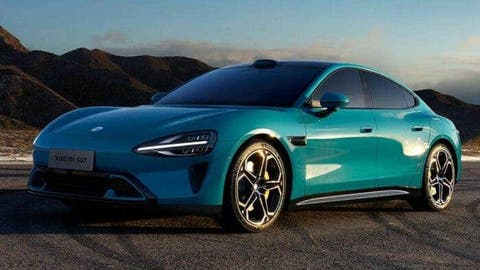Xiaomi, a Chinese electronics manufacturer, has made a significant move into the automotive industry with the launch of its first electric vehicle, the Xiaomi SU7. The SU7, a sedan, is set to be officially unveiled on March 28, with customer test drives beginning on March 25. The company has already received over 100,000 reservations for the vehicle, indicating a strong demand for Xiaomi’s entry into the electric vehicle market.
Lei Jun posted on his personal Weibo on March 13th that Xiaomi Group officially announced that Xiaomi SU7 will be released on March 28th. He also confirmed that the reservations for this car keep increasing and now surpass 100,000. An internal document shows that Xiaomi employees have the right of first refusal. Also, employees working for other brands that Lei Jun runs have the right of first refusal to purchase the first batch of Xiaomi SU7 cars.
Pricing and Competition
The industry knows Xiaomi for offering affordable products. The SU7 has a competitive price and it is available in two models. The price of the SU7 RWD is $35,200 while the SU7 AWD sells for $55,000. The highest trim level, which comes with a high-nickel 101 kWh battery from CATL and a powerful 495kW (664 hp) power output, should exceed the $50,000 threshold. Furthermore, the SU7 is a direct rival to Tesla’s Model S. It offers impressive features like sub-3 second acceleration as well as an 800V fast-charging system.
Interior Design
Xiaomi has chosen a driver-centric interior design for the SU7, combining traditional physical buttons with cutting-edge technology. The interior showcases a flat-bottomed steering wheel, tactile switches, a horizontal centre touchscreen, and a centre console. Notably, a row of conveniently positioned toggle switches under the driver’s right-hand grabs attention. These switches are responsible for managing crucial functions such as air conditioning, ride height, and the rear wing spoiler.
Sales and Service
Unlike the direct model used by China’s major new car-making forces, sales of the Xiaomi EV will include both directly managed stores and what it calls 2S (Sales & Service) authorized stores. Xiaomi Group signed letters of intent with the first 14 sales and service partners on December 29 at its headquarters in Beijing. Xiaomi EV’s new retail is based on a core of direct sales and leverages quality external forces in pursuit of ultimate business efficiency and user experience. Also, employees or those working for Lei Jun will have the right of first refusal.
A Xiaomi employee said that Xiaomi will most likely conduct an intention survey for “Lei Jun-type” companies. A source speaking to Sina Technology claims that Huanju Group has been registering its intention to purchase cars with priority this week. However, there is a limit to availability. Having the right of first refusal means being able to get priority delivery. The employee said
“The early production capacity is insufficient. There are many channels for paying deposits later, but how long it will take to deliver is the question.”
National Security Concerns
As Xiaomi prepares to start deliveries of the SU7, the President of the U.S. wants a probe into Chinese smart cars and their potential as a national security threat. The concern is that cars made in China and sold in the US might potentially collect sensitive data and transmit it overseas. Also, there are concerns that cars could even be remotely accessed or disabled. This stance may deprive US buyers of the SU7, which Lei Jun reportedly claimed has better acceleration than either Porsche or Tesla EVs.
Conclusion
Xiaomi’s entry into the electric vehicle market with the launch of the SU7 sedan has generated significant interest. This interest is reflected in the over 100,000 reservations it has already received. The vehicle has a competitive price and offers impressive features, positioning it as a direct rival to Tesla’s Model S. However, potential concerns over national security may impact the SU7’s availability in certain markets. Nonetheless, Xiaomi’s move into the automotive industry is a testament to the company’s ability to innovate and adapt to new markets.
